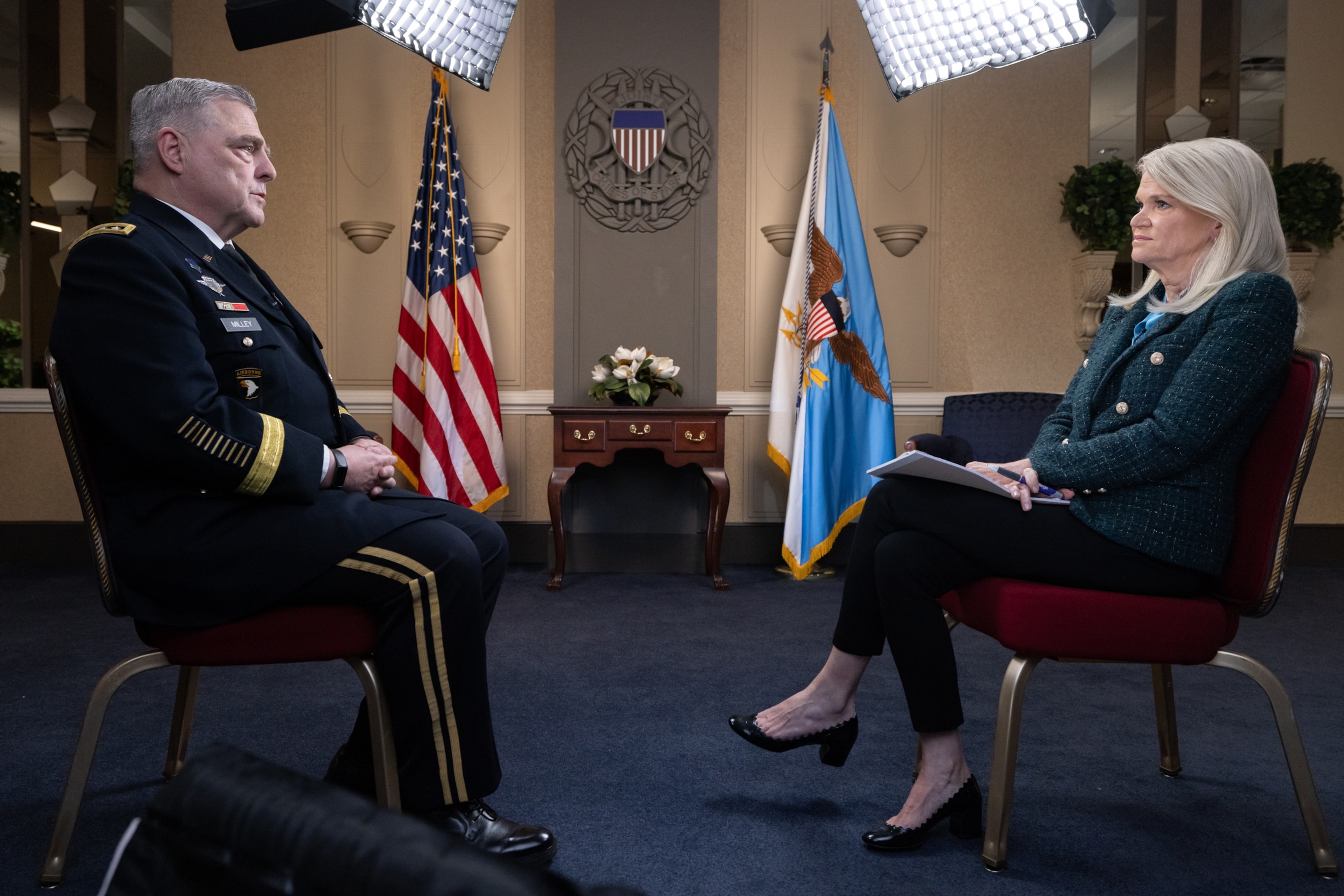'We'll be fine': Top US military officer confident there won't be a Jan. 6 repeat
Gen. Milley said he was not concerned about more riot threats after he retires.
As former President Donald Trump continues to falsely claim he won the last election while he campaigns for the 2024 Republican nomination, outgoing Joint Chiefs of Staff Chairman Gen. Mark Milley said in a new interview he is not worried about a repeat of the Jan. 6, 2021, attack on the U.S. Capitol.
"You saw what happened on Jan. 6. Are you nervous about that happening again? Can you honestly say you're not nervous about that happening again?" ABC "This Week" co-anchor Martha Raddatz asked the chairman in an interview that aired Sunday.
"No, I'm not nervous about it," Milley said. "I don't get nervous about a lot of things. I've seen a lot of combat. So I'm beyond that actually."
Raddatz followed up, asking Milley whether he's "confident" what happened that day will not happen again.
"I am confident that the United States and the democracy in this country will prevail and the rule of law will prevail," Milley said. "These institutions are built to be strong, resilient and to adapt to the times, and I'm 100% confident we'll be fine."
Raddatz pressed the retiring general on what it says about America that millions of people still do not believe the 2020 election was legitimate, citing an August CNN/SSRS poll that found 38% of Americans do not think Biden was legitimately elected.
"When you look at those numbers, and when you look at crowds, saying the election was stolen, what do you think?" Raddatz asked.
"The United States, you know, Martha, has been under a lot of challenges over the years. ... There's a term I've talked to people about the 'conceit of the present,' where people think that the present is always the worst. Well, it's not always the worst," Milley said.
He cited what he described as "tough times" for the country, including several wars, the Great Depression and the assassinations of the Rev. Martin Luther King Jr. and Sen. Robert F. Kennedy.
"This is not the toughest time. America will prevail, it will come through stronger on the other end and the American people are gonna be just fine," he said.

After Trump lost the 2020 election, Milley was reportedly concerned the former president might try to hold onto power by using the military. But he told Raddatz he did not receive any illegal commands after Election Day.
"Was there concern?" Raddatz asked.
"No, you know, I argued the case at various times for alternative courses of action. Never received an illegal order," Milley said.
One of the most controversial moments of Milley's tenure as Joint Chiefs chairman came in the summer of 2020, as racial justice protests swept the nation.
On June 1 of that year, police aggressively cleared protesters from the area surrounding the White House about 20 minutes before Trump walked across Lafayette Square to St. John's Church for what became one of the most infamous photo ops of his presidency.
For part of that walk, Milley was behind Trump, in full battle dress uniform.
He has previously said he regretted that moment, and on "This Week," Milley confirmed he considered resigning after the incident.
According to one book about the Trump administration, "The Divider," Milley -- who has acknowledged speaking with several authors covering that period -- wrote a resignation letter in which he castigated Trump as "doing great and irreparable harm to my country."
"Several people counseled me and, and they reminded me that that an officer -- a commissioned officer -- resigning is the consummate political act, and that it's our obligation to stay out of politics," Milley told Raddatz. "And if I were to resign, then that would be a grave mistake. And it would be putting the uniform even more into politics."
When he departs, Milley may be one of the most well-known figures to serve in the role in recent history.
Still, he told Raddatz he has no plans to change his policy of not commenting on presidents, including Trump, his former boss and the man who nominated him to his most senior post.
"It's a professional ethic," Milley said. "And the American people will be the deciders of who they elect as a president. It's not gonna be a general. It's not going to be someone in uniform."




